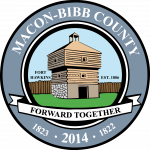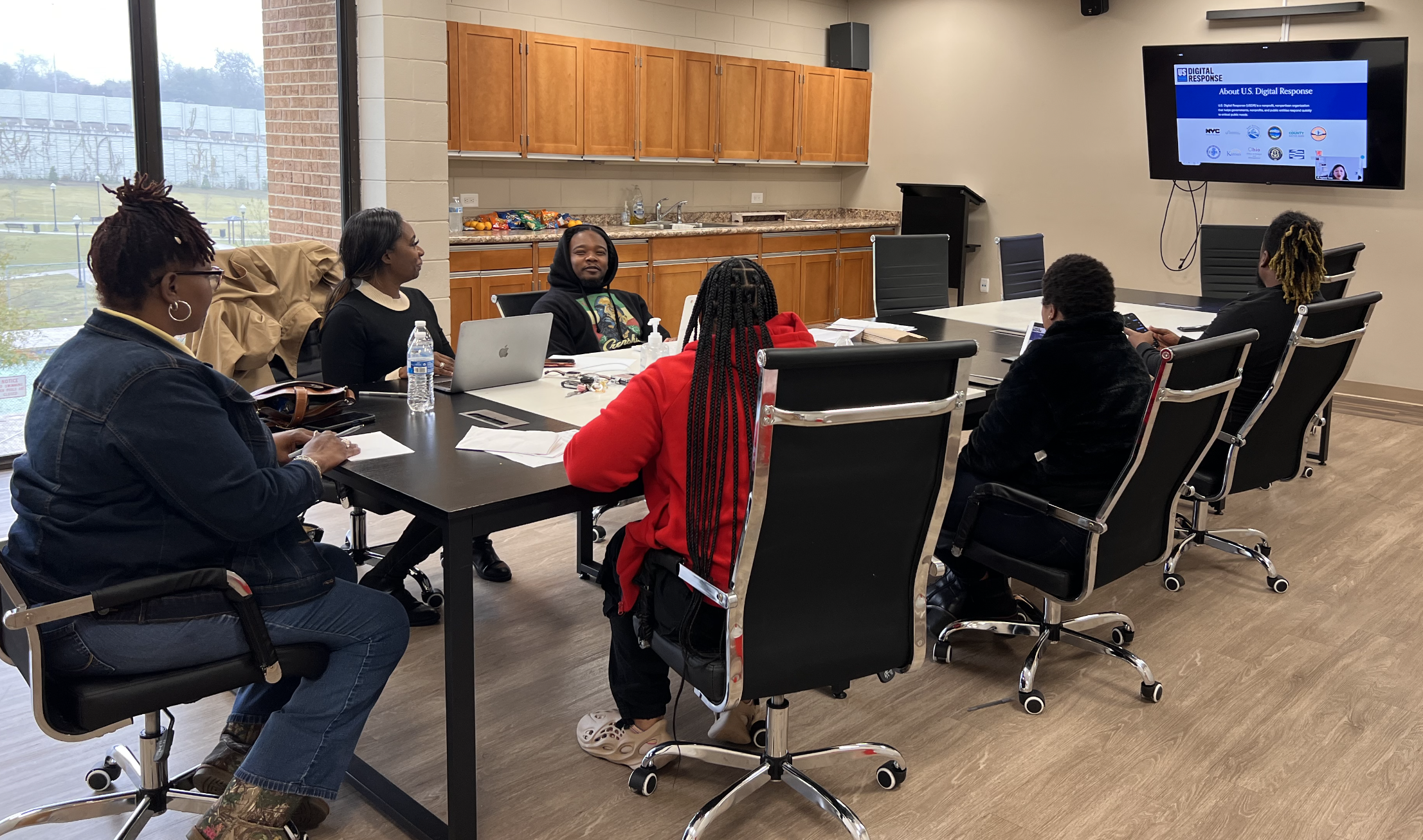On Tuesday, November 15, Macon-Bibb County and its partners hosted a virtual and in person demonstration of its new blight tracking and reporting application, which is being developed as part of the community’s participation in The Opportunity Project for Cities. Macon-Bibb is one of only four cities nationally – along with Detroit, Miami-Dade, and Long Beach – selected for this program, thanks to a grant from the John S. and James L. Knight Foundation.
“We have a long way to go before all blight is removed from our neighborhoods, and we are bringing every person, organization, tool, and resource that can help together to focus on it,” says Mayor Lester Miller. “We all have a role to play, and I’m proud of our departments for being selected for this program and being able to work with national experts on data mapping, tracking, and reporting. This will be a major tool in helping the public join us in our Blight Fight.”
Blight is very prevalent in Macon-Bibb County, with an estimated 6,000 properties currently considered blighted, and removing it is one of the top priorities for people, the consolidated government, and many partner organizations.
Once complete, the new interactive and online tool will be piloted in the Historic Pleasant Hill Neighborhood. To determine what the neighborhood wanted and needed from such a tool – and to incorporate that into its design, the group – made up of Macon-Bibb IT and community groups and leaders – held several public forums in Pleasant Hill. It even took an early version to an Open Streets event to let people see it, ask questions, and provide feedback.
“We really wanted to engage residents in fighting blight, and that meant going to them early on to hear their concerns, explain the process to them, and include their thoughts,” says Tonja Khabir. “What we found is that people wanted to be part of this important work, and that meant having an easy way to report blight, have an understanding of the full process, and being able to follow a property from start to finish.”
“People told us they wanted to help, but they needed an easy and accessible tool that also helped them explain the process to other people,” says Macon-Bibb GIS Manager Barbara Marlin. “So, we used a human-centered design process that sees the residents as the end user and allowed them to be proactive and not reactive.”
The application will allow people to report properties, upload photos, see a map of other blighted properties, research blighted properties, sign up for notifications on progress steps for a specific property, and follow a specific property through the different stages from reporting to demolition or sale to a new owner. The program will also be used by the Code Enforcement Department to track the status of the properties, communicate with people in the area about progress, and help educate the public about the entire process.
“Our primary focus is to improve our neighborhoods by working to get blight issues corrected or even removed from the area, and this tool will help us move that effort along more quickly,” says Rodney Miller, Code Enforcement Assistant Director with the Code Enforcement Department. “We know people are very supportive of our work, and we want to make sure they have a way to easily see what’s being done to help. Working with these groups is making our work more transparent and easily accessible by all people.”
“This is another major step in our ongoing Blight Fight, and it’s great to see that not only do people want it to happen…they are ready and willing to help make it happen,” says Mayor Miller. “Our community is truly stepping forward at every level to make our neighborhoods stronger.”
About the Blight Fight
One of Mayor Miller’s earliest actions (based on community feedback) as Mayor was to be more proactive with removing blight from neighborhoods, especially since there were blighted structures that had sat vacant and deteriorating for nearly a decade. The Blight Fight began in April 2021, and since then, more than 300 structures and units have been removed from neighborhoods. At this pace, the county is on track to reach 400 demolitions before the end of December.
“Removing blighted structures from our neighborhoods is just the first step in improving our neighborhoods, but it’s an essential and hugely impactful first step,” says Mayor Lester Miller. “To have removed 300 of these structures and units in such a short amount of time is an amazingly fast and visible start to improving our neighborhoods.
The Blight Fight is about more than just removing blighted structures; it also includes getting owners to fix their properties, selling properties to new people so they can be fixed up, and building new affordable houses on vacant properties.
Macon-Bibb County used money from the American Rescue Plan Act (ARPA) to help local organizations build new affordable housing. $1.6 million from the ARPA was matched by the Knight Foundation (bringing the total to $3.2 million) for NewTown Macon the Historic Macon Foundation to increase affordable housing by building new rental units and renovating existing ones in the Beall’s Hill community. Read more about that effort by clicking here
Macon-Bibb also provided $500,000 in ARPA funds to the Macon Area Habitat for Humanity, and those funds were matched by The Peyton Anderson Foundation, bringing the total to $1 million. With the money, Habitat for Humanity is building 14 new affordable homes, and the mortgage payments will provide the funding for construction projects for years to come. Read more about that effort by clicking here.
About The Opportunity Project for Cities
The Opportunity Project for Cities is a program wherein local governments, community leaders, and Google technologists (including Product Managers, Software Engineers, UX Researchers, UX Designers and more) work with residents to prototype digital tools that use open data to address local challenges.
In the long term, The Opportunity Project for Cities encourages a culture shift to a more transparent and responsive government that is better equipped to positively impact the community. The Opportunity Project for Cities builds a culture of government transparency, accessibility, and responsiveness that strengthens trust with residents and lays the foundation for lasting community-driven innovation.
The program was inspired by the U.S. Census Bureau’s The Opportunity Project and adapted for local contexts by the Centre for Public Impact and the Beeck Center for Social Impact + Innovation at Georgetown University. The Opportunity Project for Cities is supported by the John S. and James L. Knight Foundation, and pro bono technical support from Google.org.

